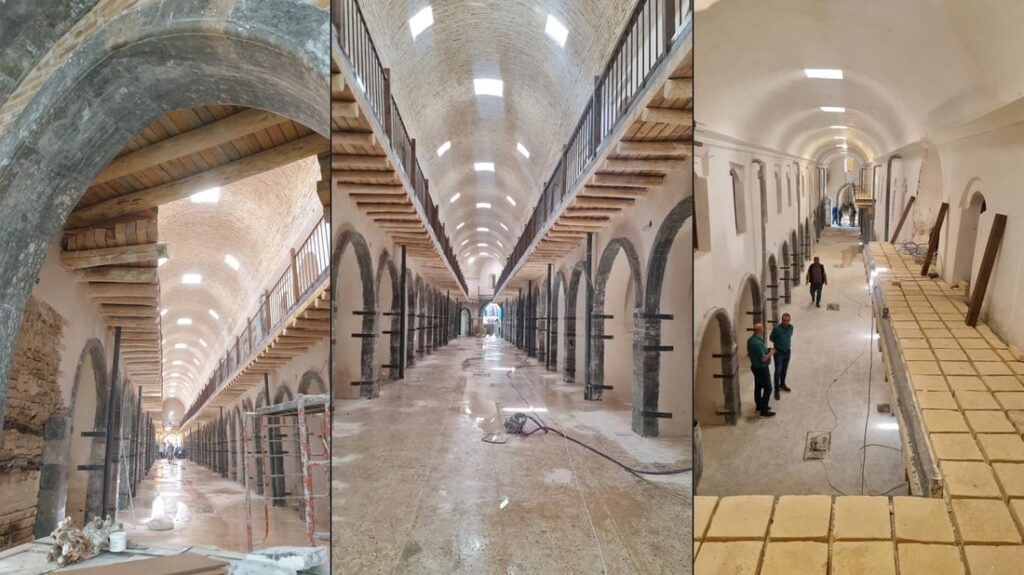'I could smell Syria': Trauma lingers among diaspora but returning home means closure

There was a beautiful lemon tree in a small neighbourhood in Damascus in the backyard of an old house. When Sally Shobut would open her window, bushes would hit the glass and eventually creep inside her room. She found the fragrance of fresh lemons intoxicating.
Shobut grew up in Damascus as a supporter of Bashar al-Assad’s government. But in 2011, when she was 17 years old, all of that changed.
Shobut’s daily commute to school across town involved taking a 45-minute bus ride. One day, as she walked to her bus stop, she was abruptly interrupted.
“Where are you going?” a man wearing a camouflage-style uniform asked her.
“I am going to school,” she answered.
“No, you’re not,” another man said.
They pushed her to the ground, assaulted her and kicked her all over, causing severe bruising that lasted for weeks. With her face on the concrete, Shobut saw some men standing in front of their shops. As she looked towards them for help, she thought to herself, "Those are my people." But they didn’t help. They were too afraid, she said.
“Fear shouldn't have stood between protecting an innocent civilian while she was being kicked,” Shobut said.
The men in uniform believed Shobut was heading to a protest that was happening at the time, but Shobut hadn’t even heard about it. Nevertheless, she was eventually released and told to go home.
Did you go home? I asked.
“No. I started looking for that protest they punished me for,” she said.
The protest was taking place during the funeral of a 13-year-old girl, who Shobut says was shot point-blank while at her school. Shobut did not know what the funeral protocol was, so she just started walking with the crowd she found.
Read More »At the funeral, Shobut remembers “intelligence officers” who started shooting at the men who were carrying the coffin. The men fell, and a little girl’s body fell out. To this day, that scene has never left her mind.
Children were killed during the Syrian uprising in 2011 as part of the government's harsh crackdown on protests against Assad's government. They were often victims of shelling, shootings, and bombings as the government attempted to quash protests.
Her anti-Assad activism began a few months after the start of the war in 2011. She would work with the neighbourhood coordination team to discreetly deliver baby formula and aid to needy people for about a year. “It’s not smuggling, but I’m going to use the word smuggling,” she said.
That was thirteen years ago. Then, in 2012, she left for the US, where she studied political science at Rutgers University and graduated with a Masters degree. During her college years, she also attended Oxford University as part of a study abroad programme in international relations.
She's always wanted to work on something regarding Syria, she said, and went from activism to becoming "more of an expert". This is a common path for many Syrians who experienced the years-long stalemate in Syria, which shrunk the space and efficacy of activism.
'I could smell Syria'
Flash forward to 2024 and the early morning of 8 December 2024 when opposition forces announced that Syria had been freed from Assad's rule. Syrians worldwide rejoiced, and Shobut cried tears of joy from her home in New Jersey.
It was later revealed that Assad had fled Damascus and found refuge in Russia.
“I could smell Syria,” Shobut said. “I couldn’t sleep for two days because I just wanted to make sure that, yes, we were liberated. I could finally go back home to my house, to my neighbourhood,” she said.
When Shobut thinks of home, she recalls Syria's lemons. The smell is fundamental to her memory of Damascus, she explained. Known as olfactory nostalgia or the "Proust effect", it is a powerful way to recall memories, either by smell, sound or taste.
Most Syrians would tell you they recall the scent of jasmine when they think of their homeland, but for Shobut, it will always be lemons.
For Syrians, Assad’s collapse marked the abrupt and unexpected end of a war frozen in time. A war that crippled the economy and reduced its cities to rubble.
Assad’s rule, preceded by his father Hafez's rise to power in the 1960s, was one of the Middle East’s most oppressive police states - and had collapsed.
'Beyond the police state, the Assad regime prevented people from imagining their dreams'
- Shayna Silverstein, professor
In March, the Syrian Observatory for Human Rights recorded the names of 507,567 people who died since the Syrian war began in March 2011. The organisation also verified 110,343 deaths of unnamed persons, bringing the total to 617,910, The New York Times reported.
While opposition forces opened Syria’s prisons, releasing thousands of surviving detainees to the relief of their friends and families, the fate of thousands more remains unknown.
The traumas inflicted by the Assad government will continue to affect people like Shobut and the Syrian people for generations, Northwestern University communication professor Shayna Silverstein said.
“Even though prisons and torture chambers have been liberated, families are still searching for some glimmer of those disappeared- at least a paper lead or eyewitness clue - in this moment of reckoning. Anxiety and fear about what may be found or not found ripple,” Silverstein said.
“Beyond the police state, the Assad regime prevented people from imagining their dreams and forging meaningful connections between social groups, instead focusing on shame, humiliation and fear as tactics for social repression.”
Silverstein said the importance of national cohesion and its symbols would be interesting to follow as Syrians determine which symbolic forms of representation hold meaning after Assad.
“The life of songs, chants, and group movement (or dance) is incredibly vibrant. This past week, we have all witnessed the extraordinary assembly of tens of thousands of Syrians in public spaces, each leading one another in collective chants and celebrating with joyful collective movement,” Silverstein said.
'Forgotten and abandoned'
Syrians like Shobut had remained engaged with Syria and its politics despite when there were signs that Assad's government was being welcomed back into the international fold and attempts were being made to project the image that the revolution had failed.
Since the beginning of the war, Syrian Forum USA (SFUSA), where Shobut is an organiser, has impacted the lives of nearly a million students by either sponsoring their education, giving them school supplies, or providing medicine and emotional support. They have placed over 41,000 people in jobs and given out more than 5,000 business grants.
SFUSA is a grassroots effort that began inside northwest Syria, a region held by the opposition forces. Turkey has been a centre for aid delivery into northwest Syria since 2014, which is why humanitarian organisations can work there.
The organisation's aim is to “teach the people how to fish rather than give them the fish for the long-term growth”, Mohamed Shallan, the Northeast manager of SFUSA, said.
Shallan explained that the world has failed Syria.








